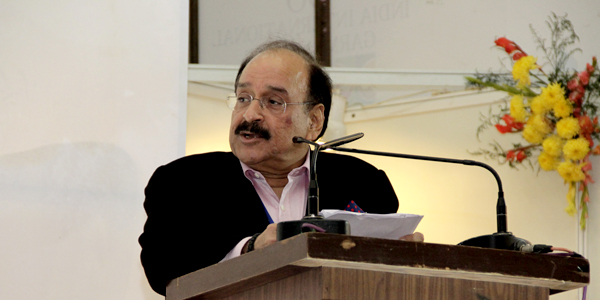New Delhi–Industry hailed the special package for the textile sector announced by the government here on Wednesday, which aimed at a three-year target of creating 10 million more jobs, $30 billion additional exports and $11 billion fresh investment in the sector.
“The comprehensive package has not only addressed the industry’s needs, but also the employment generation needs of the country. It will help the industry gain cost competitiveness,” Ashok G. Rajani, Chairman, Apparel Export Promotion Council (AEPC), said.

The textile package has measures such as tax incentives and relaxation of labour laws. It has many labour-friendly measures, including Employee Provident Fund (EPF) scheme reforms, whereby the government will bear the entire employer’s contribution of 12 per cent under EPF for new employees of the garment industry earning less than Rs 15,000 per month, for the first three years.
“The package meets some of the outstanding demands of the sector. The rebate on state taxes through duty drawback route and grant of duty drawback in case of import of fabric under Advance Authorization would add to cost competitiveness of experts,” S.C. Ralhan, President, Federation of Indian Export Organisations (FIEO), said.
Textile exports declined marginally in 2015-16 recording total exports of $36.26 billion as against $37.14 billion recorded in 2014-15.
Ralhan said that the special package for the textile and apparel sectors should be supplemented by the new textile policy to provide a long-term vision and long-term goal for the textile industry to gear up itself to meet the challenges from South Asian and South East Asian countries.
“The new policy measures unveiled will give a much-needed impetus to the Indian apparel industry, and spur growth, employment and investment,” Chandrajit Banerjee, Director General, Confederation of Indian Industry (CII), said.
It is absolutely imperative that India nurture a robust value chain, a game-changing advantage that India possesses, Banerjee said.
“Flexible labour reforms are critical for the sector as the industry is highly labour intensive and India needs to increase productivity to put up with the growing competition,” B.K. Goenka, Chairman, Welspun Group, said.
“If India can increase its share of the global market share from five per cent to 10 per cent, this industry can generate 50 million additional jobs by 2020 – that’s half the ‘Make in India’ target,” Goenka said.
“This is timely and would provide a much needed impetus to the value addition and employment in the country,” Shishir Jaipuria, Chairman, Federation of Indian Chambers of Commerce and Industry (Ficci) Textiles Committee, said.
“The proposal to provide flexibility to the garment industry which is seasonal in nature, under various labour laws would help the industry to meet their orders timely and be competitive too. This would attract large investments and create more job opportunities especially for the women in the sector,” Jaipuria said. (IANS)





